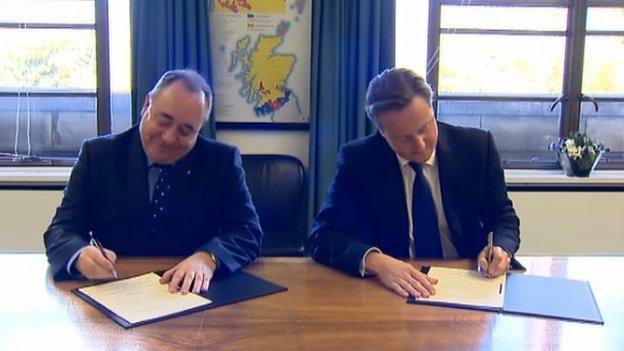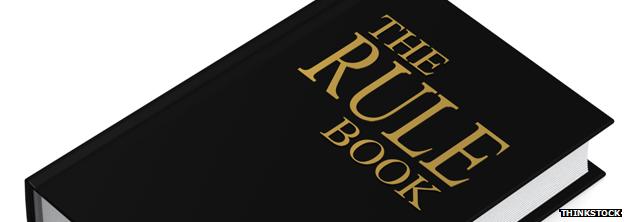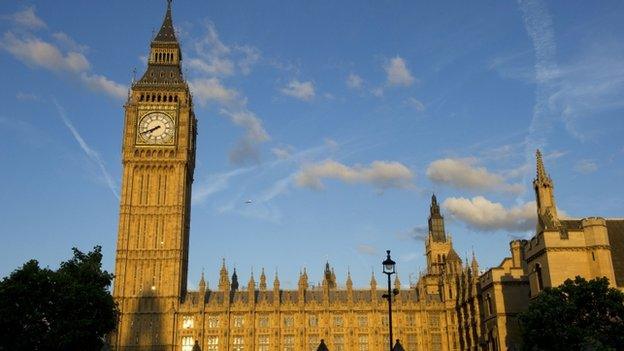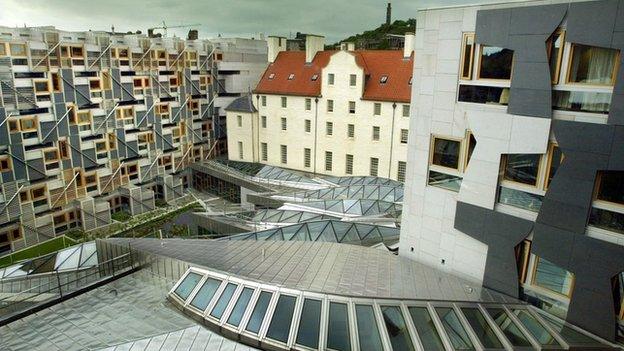Purdah's welcome relief (for some)
- Published

The UK government agreed to the purdah period when David Cameron signed the Edinburgh Agreement
Political purdah means different things for different people.
For Ministers, in the run-up to an election, it places a curb upon their natural desire to evangelise their undoubted talents to the citizens at public expense.
For civil servants, it can provide a welcome relief - from the ever helpful advice offered by ministers. A chance to get on with governing the country, free from unwarranted interruption. And, of course, to prepare for the next administration - of whatever political hue.
More seriously, purdah refers to the specified period prior to an election when governments desist from making announcements designed to impress the people and, thus, win votes for their party.

What do the rules say?

The Scottish government has published its referendum and election guidance advice on its website, external. It says.....
"All elections (including by-elections) and referendums have some impact on how civil servants and staff in public bodies go about their work."
"At all times, civil servants must follow the Civil Service Code principles of objectivity and impartiality."
"Particular consideration should be given to these requirements during pre-election or pre-referendum periods."
"In advance of the referendum an advice note was prepared for civil servants and staff in Scottish devolved public bodies to provide a point of reference in handling issues associated with constitutional reform, including the referendum on independence."
"The note re-affirms the core values set out in the Civil Service Code and Scottish Ministerial Code and set out some practical guidelines to help officials go about their business."

The argument goes that public money should not be spent in benefiting one side at the expense of another.
Politicians can still make optimistic claims, of course - but they must do so in their own time and at their own party's expense.
But this is a referendum, not an election - and so there are added subtleties.
Purdah is properly known as the Pre-Referendum Period. This is not in any way to be confused with the Referendum Regulated Period. Still with me? Well done.


The regulated period started on the 30 May 2014. From then to polling on September 18, the Electoral Commission applies and monitors limits on campaign spending by groups on either side.
Purdah - or the Pre-Referendum Period - dates from 22 August 2014.
From then to polling, Scottish Ministers and their agencies are generally prevented from publishing material relating to the referendum or seeking to influence or encourage voting in the ballot. Precise guidance explains the rules.


A referendum on whether Scotland should become independent is to take place
People resident in Scotland will be able to take part in the vote, answering the "yes/no" question: "Should Scotland be an independent country?"
The referendum will take place on Thursday, 18 September
Go to the BBC's Scotland Decides page for analysis, background and explainers on the independence debate.
And you can follow the debate on social media by tweeting @bbcscotlandnews, external; you can find us on Facebook, external and email us at newsonlinescotland@bbc.co.uk

The requirement for purdah is set out in the Scottish Independence Referendum Act 2013 - the Holyrood statute which set out the rules for the ballot.
Under that statute, the rules on purdah also extend to local authorities in Scotland and other public bodies.
But, because this is a devolved statute, the rules do not extend to the UK government. This caused some disquiet. However, the topic was addressed in the Edinburgh Agreement, signed by the Prime Minister and the First Minister. The UK government has pledged to match the purdah rules which constrain Scottish ministers.
What was that? Did somebody speak at the back? You want purdah to extend all year round? And to cover the political parties too? Take that person's name!

Political 'purdah' and the attitude of schools
BBC research finds that in Scotland, 26 out of the 32 Scottish local authorities have barred the official referendum campaigns from entering schools. Many say that the move is justified under the rules of "purdah", which has now started and will run up until polling day.